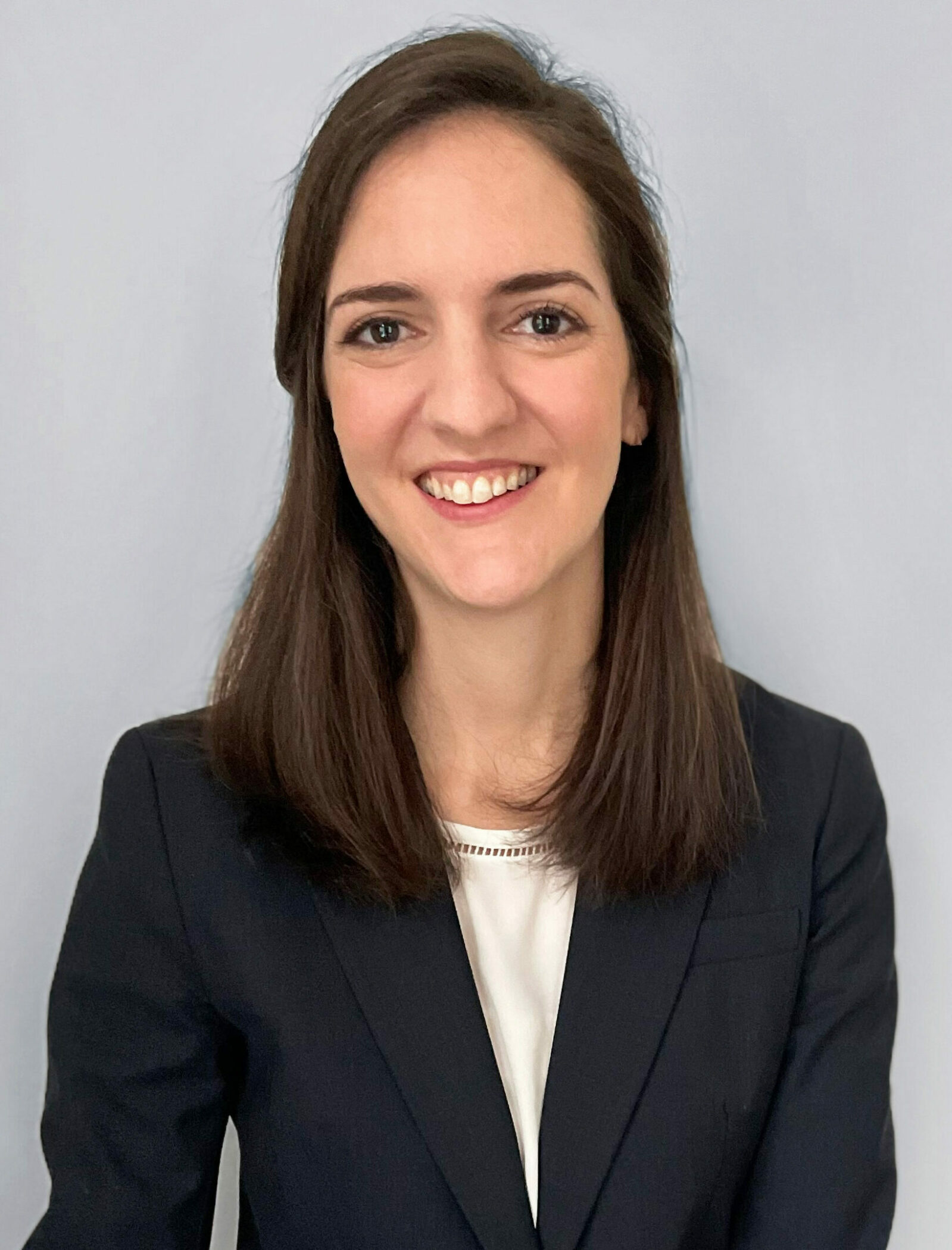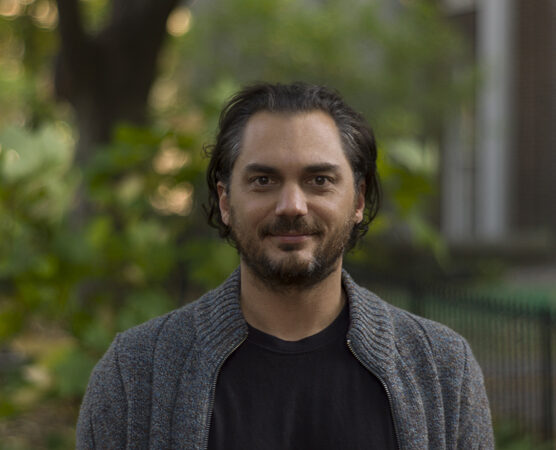School of Journalism and Mass Communication (SJMC) Associate Professors Chris Cascio and Kathryn McGarr are the recipients of the 2025 Vilas Associates Award. This award is given by the Office of the Vice Chancellor for Research and Graduate Education and supports recipients as they advance their research to new levels over the course of two years.
The award recognizes “new and ongoing research of the highest quality and significance” for tenure-track assistant professors and tenured faculty within 20 years of their tenure date. To earn this award, funded by the William F. Vilas Estate Trust, faculty members submit proposals outlining their research and how the award can move their work forward.
The Vilas Associates Award is granted to researchers spanning a wide range of fields of study and expertise. Cascio combines social neuroscience and communication studies to dive deeper into how people process information, whereas McGarr explores and analyzes historical archives to produce a book about the openness versus privacy of conversation.
While Cascio and McGarr are working to advance their own projects in very different areas, the Vilas Associates Award offers more than just financial support, it creates a sense of community that makes difficult research projects feel more supported.
 “An award like this is really meaningful because it gives you sort of a cohort of people who are all sort of in the same phase of a project,” McGarr said. “It’s a new phase of work, and you’re getting support again.”
“An award like this is really meaningful because it gives you sort of a cohort of people who are all sort of in the same phase of a project,” McGarr said. “It’s a new phase of work, and you’re getting support again.”
Unlike writing a dissertation, McGarr explained that the experience working on a post-tenure project offers almost no support and can feel “solitary,” but this award is giving her the support and community needed to advance her research.
“It’s such a wonderful vote of confidence in work I have been doing the last couple of years on my own, and now get to start sharing with other people,” McGarr said. “Having a committee who looks at this work, decides they want to fund it for the next two years and is encouraging, feels really amazing.”
McGarr’s research is part of her post-tenure project which follows the conclusion of a historian’s tenure book. Her work focuses on transatlantic friendship networks, mostly British and American, and she analyzes conversations regarding U.S. foreign policy and policy in the Middle East. McGarr looks at works of mostly public intellectuals who write for a public audience, but are also in academia.
Cascio’s broader research is centered around how persuasion and social influence impact people’s behavior. Inspired by a conversation with his child’s pediatrician about the impacts of social media on children, Cascio focused his research on studying adolescent health and well-being in relation to social media use. 
With this award, Cascio plans to extend his research beyond studying teens’ social media use, and instead, expanding it to analyzing parents’ social media use as well.
“As a parent and as a researcher, [this study] answers really interesting questions,” Cascio said. “Adolescent health is really important. It sets kids up for their future health, the habits they develop, and the things that they do. It’s going to dictate their future, and if I can be part of making that better for anybody, then that’s great.”
The years of research Cascio and McGarr pursue feel so impactful once they are able to share their findings in a clear, accessible way that benefits the broader community. The Vilas Associates Award allows both researchers to uphold the Wisconsin Idea by continuing to expand their research and eventually share their findings beyond the bounds of the university to create a positive influence in society.
“Part of the big impact is the Wisconsin Idea. It’s giving back to the community, giving back to the state in which we live and we conduct our research,” Cascio said. “It’s always nice to engage with the public on your research and show them the things we do on campus are meaningful and can translate to help or at least inform the public.